“Gift economies arise from the abundance of gifts from the earth, which are owned by no one and therefore shared. Sharing engenders relationships of goodwill and bonds that ensure you will be invited for the feast when your neighbour is fortunate. Security is ensured by nurturing the bonds of reciprocity.” - Robin Wall Kimmerer
Let’s just lay it on the table - an unpopular, but pretty hard to dispute point of view: Our current business-as-usual model (aka extractive capitalism), is clearly not sustainable on our finite planet. And if we keep trudging down this path we are going to fall off the cliff of catastrophe.
And while impending catastrophe is certainly not in any way desirable, it may not be the death knell we fear. It could be the perfect kick in the pants to take action, to let go of our destructive ways and create something steeped in reciprocity and human connection.
Robin initiates the call: “Let’s create something different, something aligned with our values. We don’t have to be complicit.” The paradigm we are currently living in - the extractive capitalist model - is not the only story we can tell.
We can start retelling the story by engaging in the gift economy: “A redistribution of wealth based on abundance and the pleasure of sharing. Someone says ‘I have more than I need, so I offer it to you.” It just makes so much sense.
Things we chat about in this episode:
Why cooperation is better than competition.
How you’re participating in the gift economy without even knowing it (yes! right here on Substack!)
The curse of baseball bat sized zucchini’s (who else can relate !?!)
Is it easier to participate in the gift economy in rural areas versus in the city?
What Katherine did with 100 pumpkins …
And so much more!
Cool things we reference:
📕 L’entraide, l’autre loi de la jungle - Pablo Servigne and Gauthier Chapelle
📕 The Gift: How the creative spirit transforms the world - Lewis Hyde
Actions we are going to take after reading this chapter:
Manon: I am going to finally finish reading “The Gift: Creativity and the artist in the modern world” by Lewis Hyde (referenced by Robin in this chapter).
Katherine: I am going to make a gratitude list of all that nature gives me. And to include these things in my nightly gratitude practice.
Thank you so much for listening today! We really appreciate you being here. Until then we hope you stay well and have many moments to Slow Read.
Your Friends,
Katherine and Manon
P.S. If you would like to read Serviceberry with us, please feel free to download our questions:






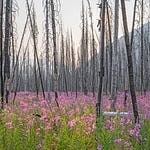


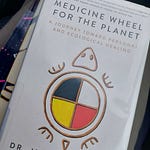
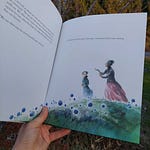
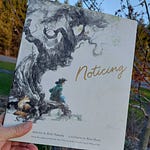
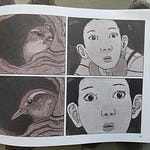
Share this post